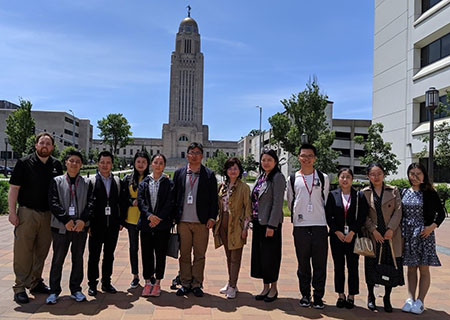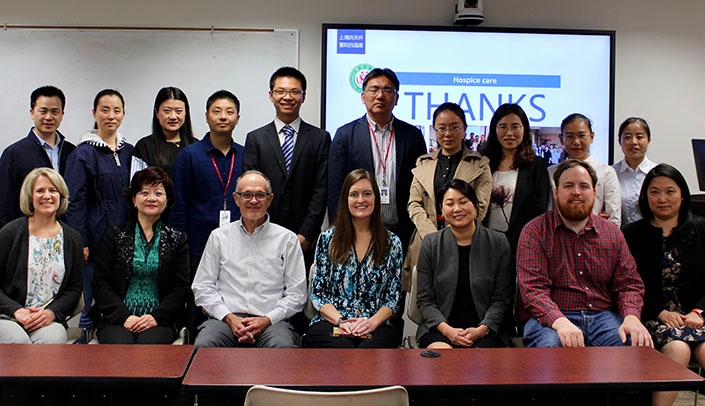The UNMC Department of Family Medicine and the Asia Pacific Rim Development Program (APRDP) recently hosted the U.S.-Sino Family Medicine Leadership Development Program at UNMC.
The program provides an opportunity for family medicine physicians associated with Tongji University in China to come to UNMC to build leadership capacity in family medicine, foster the continued development of family medicine in China and prepare to address the health needs of the communities they serve.
 |
| Members of the group visited the state capitol in Lincoln. |
This year, 10 trainees from Shanghai community health service centers and the Shanghai Municipal Commission of Health attended the 10th annual event, held June 3-14.
“Family medicine is a relatively new medical specialty in China and symposium participants are selected due to their interest in becoming future leaders in educational and care delivery models,” said Jennifer Liu, M.D., co-director of the program and assistant professor in the UNMC Department of Family Medicine.
Program co-director Jessica Koran, Ph.D., associate professor and director of behavioral health in the UNMC Department of Family Medicine, called the 10th anniversary a “milestone year” for the collaboration, noting that Tongji University is planning a larger symposium for this fall in Shanghai to also mark the occasion.
Dr. Koran said that when the collaboration began, family medicine was not a specialty in China.
“Over the past 10 years, we have introduced family medicine as a specialty and helped to incorporate family medicine physicians into their health care structure,” Dr. Koran said. “We have learned a lot from our Chinese colleagues and continue to work together to build strong community and public health resources to manage their population.”
The focus of this year’s event was to teach faculty development and leadership skills that the attendees can take back to share and implement with their students, residents and colleagues.
“During the leadership symposium, we provided sessions on communication skills including working with difficult patients, delivering bad news and behavior change, course development, small group teaching and the process of evaluation and giving feedback to learners,” Dr. Koran said. “We also provided opportunities to engage in how we teach skills using simulation and highlighted public health needs and considerations.”

Congratulations to family medicine that reached such important milestone in their US-Sino training program!